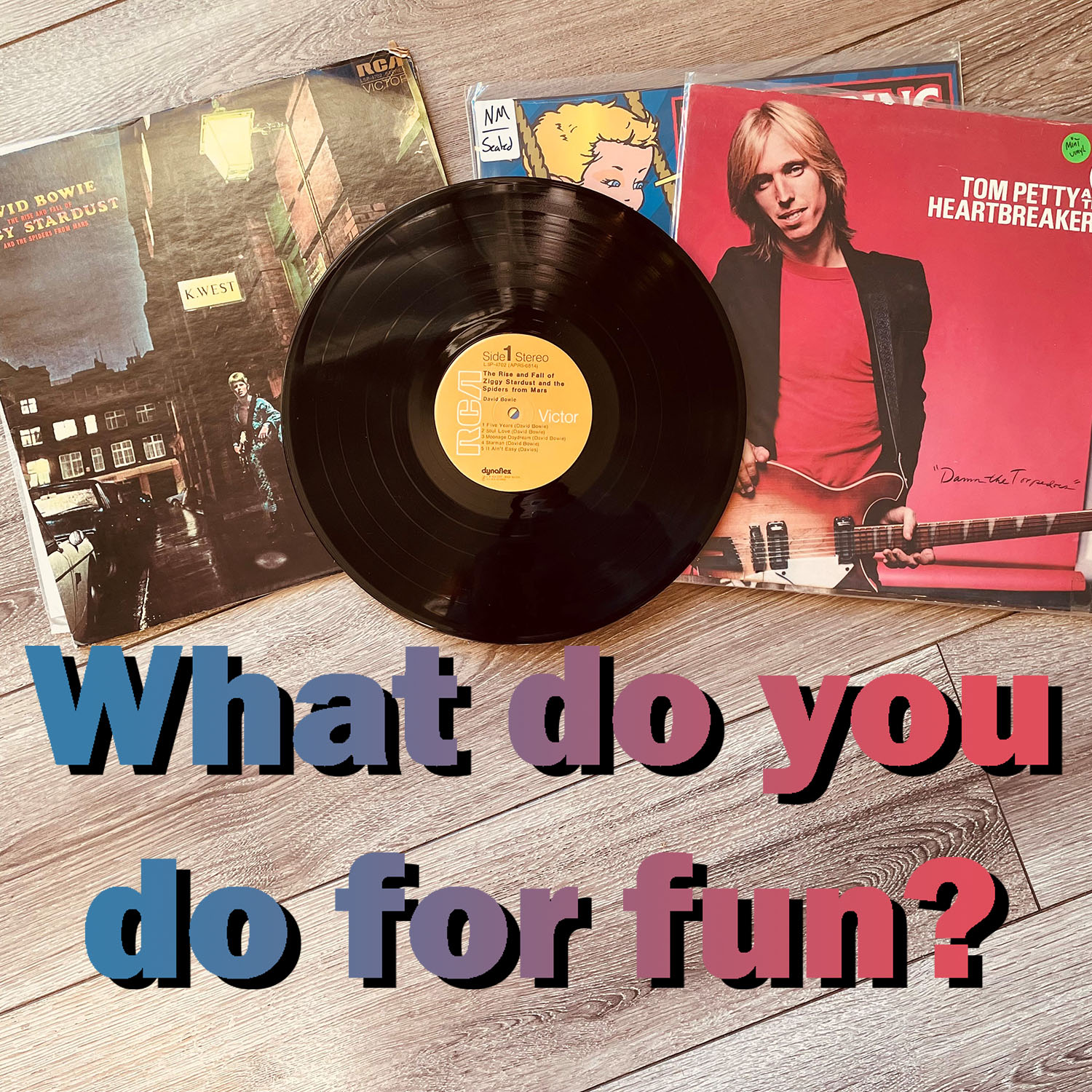

What Do You Do For Fun?
By Dr. Laura Heaphy
Published March 23, 2022
“What do you do for fun?” is a question that may come up in small talk or even in a job interview. It seems simple enough, but may be a challenging question to answer for the average UVU student. Many of you work and go to school and some even have families. All of this can add up to an extremely limited amount of free time.
I’ve had periods in my life where having a hobby felt nearly impossible in terms of time. I’ve also experienced the belief that doing something for fun would be irresponsible when I have so many other work/school/family responsibilities to attend to. And yet… I’ve discovered both personally and professionally how vital hobbies are to my happiness and ability to thrive.
I recently reconnected with a past hobby of listening to and collecting vinyl records. This involves searching for records online, attending online record auctions and simply choosing one record a day for listening. The joy, entertainment, and relaxation that this has brought to me has been noticeable. When I’m feeling tired and like I have very little free time, engaging in an intentional hobby really helps me to emotionally “refuel”.
From a psychological perspective, hobbies as a means of feeling happier is related to a concept known as “behavioral activation”. This simply means that engaging in different behaviors leads to a more positive emotional state. A therapist might suggest that you create an “activity schedule”, which is just a fancy way of saying that you create a schedule for hobbies/enjoyable activities that you want to prioritize each day in order to create more accountability.
If you are still feeling reluctant about identifying or reconnecting with a hobby, let me provide you with some potential benefits:
- Connect with others. Whatever your hobby, there are other people who share your interest. This can be a great way to make friends or deepen connections. You can also connect with other people by talking about your hobby, as people may not know a lot about it. Hobbies make us interesting!
- Make time for yourself. It can be so hard to justify time for “fun” when you are busy. However, being intentional about how you use your free time is likely to leave you feeling more fulfilled when you walk away (as opposed to how you feel after watching reels on social media for an hour or two). Challenge yourself to enjoy something without multitasking.
- Learn something new about yourself/build confidence. Many hobbies will push you a little bit outside of your comfort zone as you learn something new or build a skill over time. This is good for building confidence.
- Fight depression and low mood. Research shows that doing more by engaging in hobbies that we enjoy (or used to enjoy) decreases levels of depression. Even if you don’t struggle with a formal diagnosis of depression, prioritizing fun activities can improve your overall mood.
Take a moment to consider what hobby is most appealing to you. It might be cooking, reading a specific genre of novel, watching documentaries, taking photographs, metal detecting, hiking, playing chess, hosting a game night, playing a sport, learning about whales, or painting. The possibilities are nearly endless. Taking time for yourself is productive and important and a valid use of your time.
Reference:
Funderburk, J.S., Pigeon, W.R., Shephardson, R.L. & Maisto, S.A. (2020). Brief behavioral
activation intervention for depressive symptoms: patient satisfaction,
engagement,
and treatment response. Psychological Services, 17(4), 443-451. doi:10.1037/ser0000328

